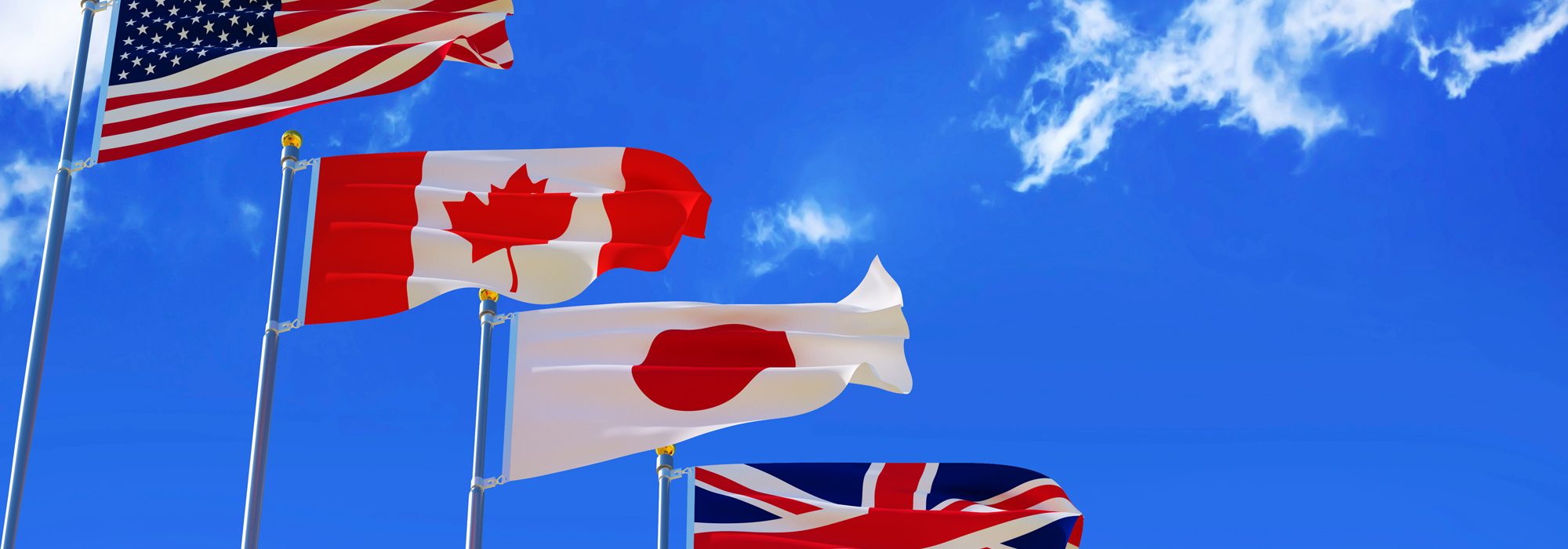
Canadian businesses of all sizes feel the impacts of global standards, directly or indirectly. These standards affect Canadian companies because they either form the basis for our domestic laws and regulations or are treated as best practices and heavily influence the decisions made by our government in the development of domestic policy.
Global standards are born and bred within the world’s international economic forums such as the G7, the G20 and the Organisation for Economic Co-operation and Development (OECD). If businesses in Canada or around the world want a say in the content and implementation of global standards, they need to be actively engaged from the start in the discussions that develop them. That’s where business meets diplomacy.
We see these get-togethers of heads of state and their senior cabinet ministers mostly as a series of grip-and-grin photos. There is a temptation to write off international gatherings as just talking shops. But they are crucial forums where decisions are made that impact Canadian businesses in a variety of ways.
From idea to implementation, the process can take years. The G7 and the G20 can set the high-level agenda, and the OECD then delves further into the weeds. Alternatively, specialist groups can work on an issue for years before it is given a boost by political forums such as the G7 and G20.
A good example is the Common Reporting Standard, which enables the world’s tax authorities, such as the Canada Revenue Agency, to exchange information in order to catch tax evaders. Although the standard did not become effective in Canada until 2017, the actual work started years before in the OECD. It received political support at the 2012 and 2013 G20 meetings and the 2013 G7, and the standard was then agreed on through an international convention in 2014. By the time Ottawa was discussing implementing legislation in 2016, it was too late to accommodate concerns of Canadian businesses — the outcome was fully baked.
In the area of responsible business conduct, the benchmarks that our government uses to assess alleged wrongdoing abroad by Canadian companies draw heavily on the framework developed by the OECD and published in the Guidelines for Multinational Enterprises. On data governance, the OECD’s privacy guidelines set the bar for Canada’s domestic privacy legislation.
More recently, the international economic forums have been focused on distortive industrial subsidies. The Global Forum on Steel Excess Capacity was created at the 2016 G20 summit, and it has played an important early role in setting the parameters that will (hopefully) deal with domestic subsidies that are causing global overproduction of steel. Its three-year mandate expires at the end of 2019, and whether it continues will also be a decision for the G20 to make.
Looking forward, the OECD is working on how taxation applies to the digital economy, a major concern worldwide. Debates at the political level between the US and others at the G7 and the G20 will set the international agenda on this issue. Global standards are also being developed on artificial intelligence, an area where the OECD put down a marker at this year’s ministerial conference by issuing its Principles on AI. Guidelines for responsible business conduct may expand beyond the extractives industry to other sectors, such as financial services, where the development of norms would have implications for how Canadian financial institutions operate abroad.
Thankfully for the business community, the G7, the G20 and the OECD do not operate within a vacuum. These bodies of government representatives all have mechanisms to engage the business community, to ensure that private sector perspectives inform their decision-making processes. As with the domestic policy process, decision-makers on international matters need to hear a wide range of perspectives to ensure the implications of issues are fully considered. This includes ensuring that standards do not unnecessarily harm one country or excessively benefit another.
But the Canadian business community currently punches below its weight in the business advisory groups that feed into the workings of the G7, the G20 and the OECD. It’s not enough for us to engage with our own government. Shaping the consensus positions put forward by the business advisory groups, called the B7, the B20 and Business at OECD (BIAC), respectively, is crucial. The Americans and Europeans tend to be more visible there, which means their voices are disproportionately heard when the business community is developing common positions. The maxim that decisions are made by those who show up is rarely truer than it is here.
We need more members of Canada’s business community to take their seats at these tables. They must be seen and heard before the seed of an idea grows into a solid, internationally agreed-upon standard. Progress may seem sluggish, but we shouldn’t mistake a slow pace for ineffectiveness. Getting consensus among dozens of countries on important issues does take time, and today’s realities require businesses to think ahead just as the international forums do.
Diplomacy: it isn’t just for governments anymore. Canadian businesses must look at groups such as the B7, the B20 and BIAC as opportunities to help shape tomorrow’s rules and regulations — the ones that will impact their own growth and profitability. They are the mechanisms through which Canadian businesses work with international partners in a form of “business diplomacy” to ensure their own interests, and Canada’s, are advanced. The discussions in these forums will pay longer-term dividends to the bottom lines of participating businesses.
Photo: Shutterstock / Alexey Struyskiy
Do you have something to say about the article you just read? Be part of the Policy Options discussion, and send in your own submission. Here is a link on how to do it. | Souhaitez-vous réagir à cet article ? Joignez-vous aux débats d’Options politiques et soumettez-nous votre texte en suivant ces directives.








